How Much Does It Cost to Live in Japan
Bored of life at home? Wish things were a little more exciting? Sometimes you really just need a change of scenery. Life can get a bit samey after a while, especially when you feel like all you do is work. It's easy to feel like things are a little bit stagnant. Thankfully, you don't have to stay put – the world is your oyster.
Japan is a sparkling, modern pearl in the heart of that oyster! With traditions spanning centuries and an uber-modern metropolitan culture, Japan beautifully blends the old and the new. Whether you're interested in decadent cuisine, vibrant nightlife, or extravagant ceremonies there's a little something for everyone in Japan.
At the end of the day though, just upping your life and moving abroad isn't easy. Thankfully, a little bit of research can make the process slightly easier. Keep reading for more information on the cost of living in Japan, and what life is like once you get there.
Why Move to Japan
Japan is one of the most popular travel destinations in the world. The delicious cuisine, unique traditions, and modern culture bring in millions of visitors every year. That being said, moving to a place is a completely different endeavour from visiting as a tourist. So what is it really like to live in the Land of the Rising Sun?
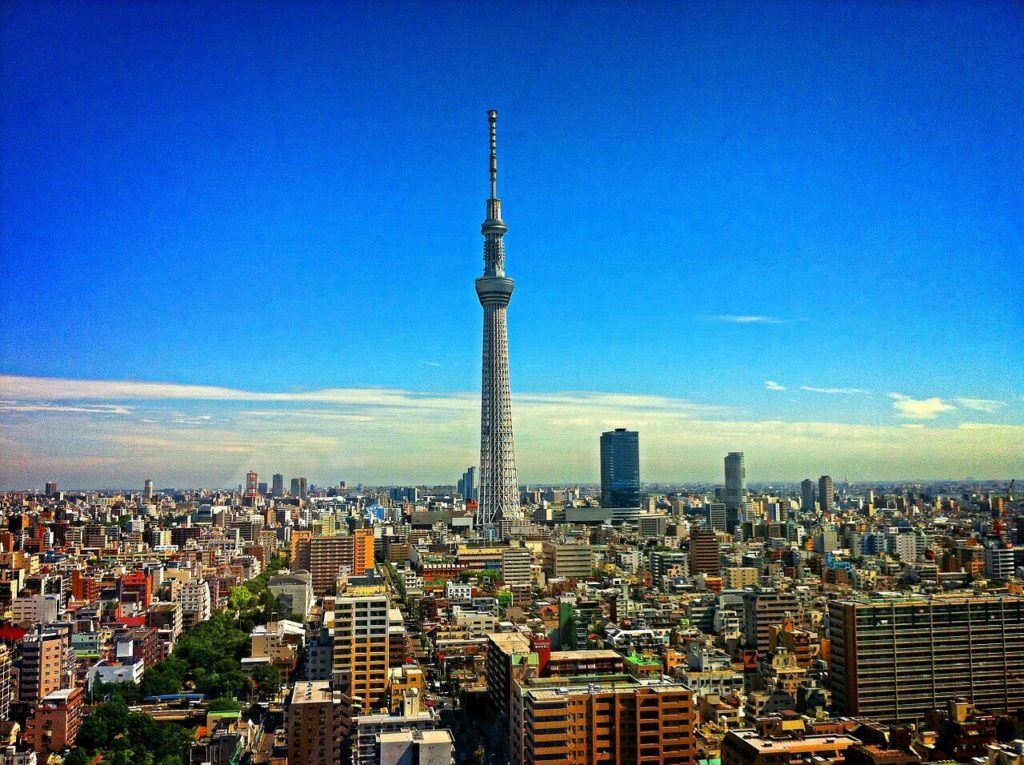
The country has long been at the cutting edge of technology, resulting in a modern and well-educated workforce. Once you actually find a job you'll notice how incredibly efficient things are. Outside of work you'll also notice a vibrant cultural scene – from the pounding nightlife of Osaka to modern fashion in Shibuya. Japan is an eclectic place to live in.
That's not to say it doesn't come with it's downsides. Work-life balance isn't part of the Japanese vocabulary – with many employees literally working themselves to death. It's also home to some of the most densely populated cities in the world. It takes a lot of emotional strength to live in Japan.
Cost of Living in Japan Summary
There's no avoiding it – Japan is expensive! Densely populated cities and island nations come with high costs, and it's often ranked as one of the most expensive places to live in the world. That being said, the unique culture and excellent public facilities make it worth it for many expats. You'll need to figure out how to balance this before you make the big move.
Your cost of living in Japan will fluctuate depending on your lifestyle. Eating out will obviously cost more than making your own meals – but it's also a major part of the local culture. It's all about finding a happy medium to suit your wants and needs.
The following table runs through the most common expenses associated with life in Japan.
| Expense | $ Cost |
|---|---|
| Rent (Private Room vs Luxury Villa) | $700 – $3100 |
| Electricity | $100 |
| Water | $30 |
| Mobile Phone | $60 |
| Gas (per litre) | $1.28 |
| Internet | $40 |
| Eating Out | $10-50 |
| Groceries | $130 |
| Housekeeper (Less than 10 hours) | $300 |
| Car Rental | $800 |
| Gym Membership | $90 |
| TOTAL | $2000+ |
What does it cost to live in Japan – The Nitty Gritty
The table above gives you a rough idea of the cost of living in Japan – but chances are this will vary massively depending on your lifestyle. Let's take a closer look at all of the other aspects of moving to Japan.
Rent in Japan
Rent will definitely be your biggest cost – as it would be anywhere else in the world! What does come as a shock to expats in Japan is just how high the rents actually are. Japan's cities are among some of the most densely populated in the world, and rent prices have skyrocketed as a result. Even in the more rural areas, you'll still be paying a premium as these are often tourist hotspots.
You might have seen the horror stories involving people living in shoebox apartments that take up less space than a box room elsewhere. This is absolutely a good way to save money – but it can get pretty claustrophobic and usually doesn't give you access to a kitchen. If you can, we recommend splurging on a livable apartment. It doesn't need to be lavish – but it should at least have a kitchen. You can, of course, opt for a studio-style apartment – but try to find something that has enough space for you to separate your living and sleeping area.
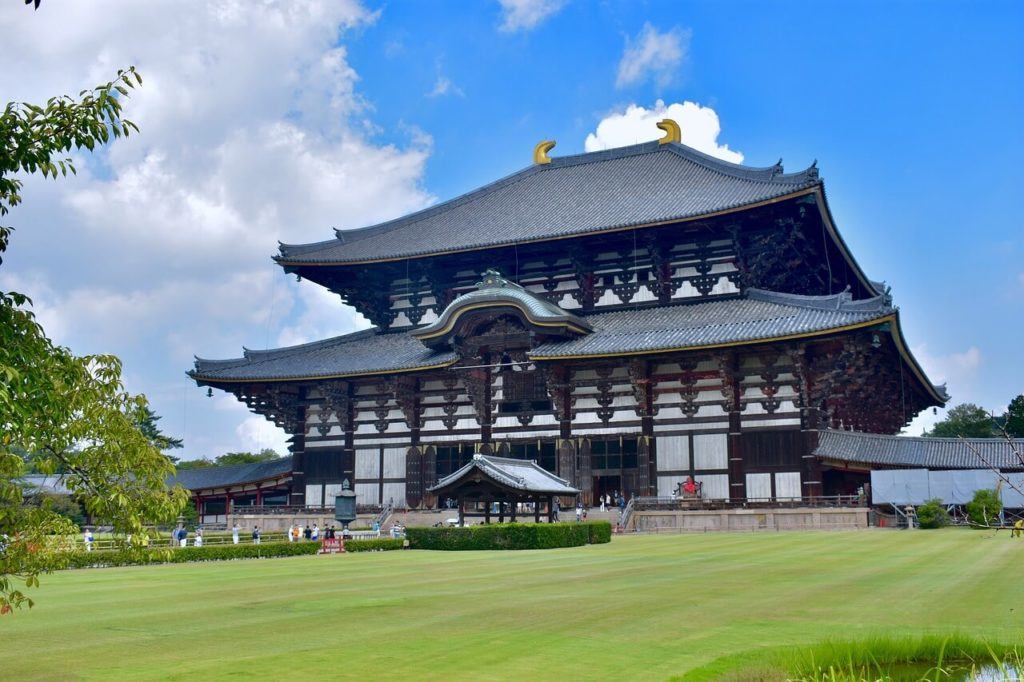
Japan's major cities are designed more like a collection of connected smaller cities rather than a series of suburbs sprawling out of a defined center. This means you won't necessarily save money by living further from the 'heart' of the city. Ideally, you'll be living closer to where you work, but the excellent public transport means this isn't always necessary. Some areas are slightly cheaper than others – but the type of accommodation will have a much bigger impact on the cost.
It's popular for expats to opt for a serviced apartment. This means you can book it before you arrive and don't have to worry about navigating the many listings websites. That being said, you will have to pay a premium for these apartments. If you'd rather save some cash and go it alone, your best option is expat groups on Facebook. This way, you won't have as much of a language barrier to navigate compared to the main listings websites.
Room in an apartment share in Japan – $700-1000
Private (one bedroom) apartment in Japan – $1200-1300
Luxury (three bedroom) apartment in Japan – $3000+
For those who are opting to find a local apartment, it can give you a little peace of mind to book an Airbnb for your first month or so. Finding a place to stay in Japan isn't as difficult as other parts of the world, but it takes most people around 3-5 weeks. You'll definitely need to view the property in person as images can be incredibly deceiving (especially in those tiny studios).
There aren't any residential taxes for tenants in Japan, but the landlord will have to pay a portion of their income – hence why the costs seem so high. It's very rare for bills to be included – though this is of course completely different in serviced apartments. Always check the terms of the contract and hire a Japanese speaker to help you.
Need a Crash Pad in Japan?
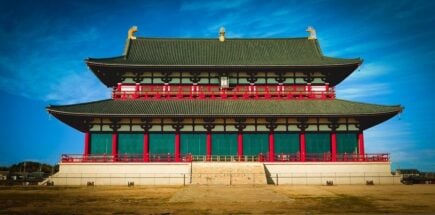
Need a Crash Pad in Japan?
Home Short Term Rental in Japan
This apartment in Tokyo is located close to the airport and right next to the train station. It's fully equipped with all the comforts of home, providing a great base for exploring the area. It's the ideal place to base yourself as you find a more permanent home in Japan.
Transport in Japan
Japan is the gold standard when it comes to public transportation. High speed rail stretches almost the entire length of the country – from Hokkaido to Kyushu. Most major cities have extensive metropolitan rail networks – keeping every neighborhood well connected. These are also pretty affordable (by Japanese standards), so it's rare to see locals using cars.
Within the cities themselves bikes are also pretty popular. Excellent urban planning means most people live within a short commuting distance of everything they need. This is why around 16% of all journeys made in any given day within Tokyo are by bicycle. It's totally worth getting yourself a pair of wheels once you're settled in.
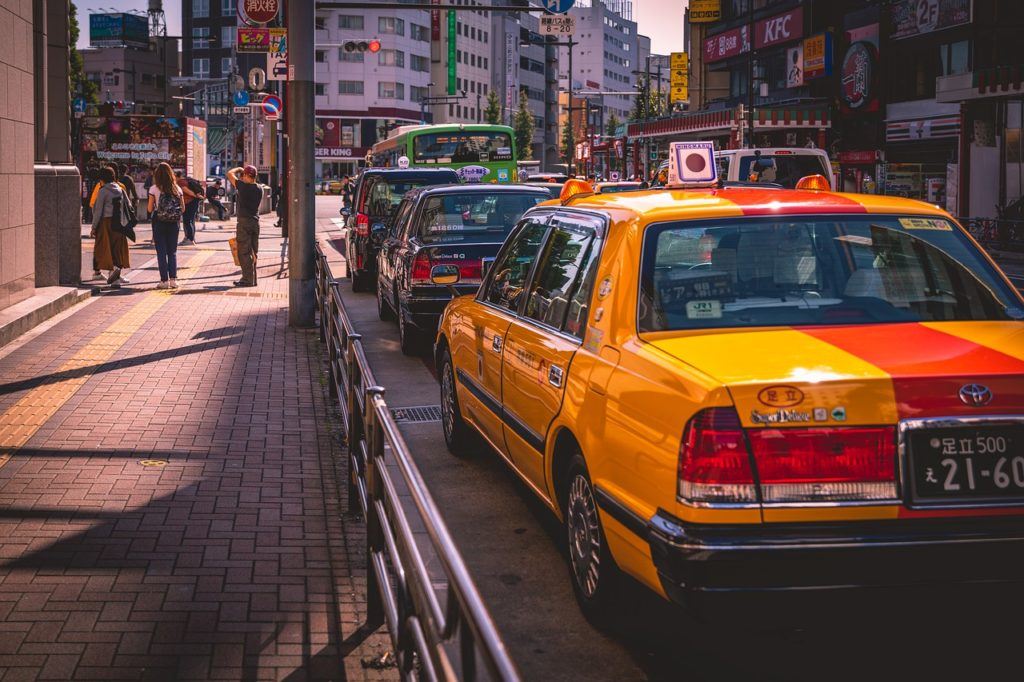
One set of wheels you probably won't want is a car! As already mentioned, the country has such an excellent public transport network that you won't need one. Even if you prefer cars they come at a huge expense compared to abroad. It's simply not economically (or environmentally) sound to drive in Japan.
Taxi ride (airport to city) – $50
One day Tokyo Metro pass – $5
Bullet train (Tokyo to Kyoto) – $120
Food in Japan
Japanese food is famous across the world. Sushi, chicken katsu, and ramen are among some of the most popular dishes globally. Once you arrive you'll notice that there's more variety than you could imagine. Whilst many dishes – like okonomiyaki – have specific regional origins, the metropolitan culture means that you can find them across the country these days.
Of course – it's not just Japanese food! Tokyo is a major cosmopolitan hub – so you won't be too far from your home comforts. International food does tend to cost a bit more so keep it for special occasions, but you don't have to stick to local cuisine if you don't want to.

Eating out is an essential part of Japanese culture, so make sure you have a budget set aside. That being said, you'll save a lot of money by opting to cook your own meals a few nights per week. Depending on what kind of kitchen you have, plan to eat in for at least four nights per week.
The three biggest supermarket chains are Ito Yokado, AEON, and Tokyu Store. This is where you'll make some real savings on groceries. That being said, night markets are also popular across the country – and you can even grab some street food to eat as you shop. Last but not least – there's a vending machine for everything, so make sure you try out some of the more unique items.
Rice (1kg) – $4.57
Eggs (12) – $2.38
Chicken (1kg) – $8.95
Soy sauce (bottle) – $2
Local fruit/veg (1kg) – $4
Street food (per portion) – $2-5
Sushi bar (per piece) – $0.70-5
Bread (Loaf) – $2
Drinking in Japan
The tap water quality in Japan is excellent – even in the major cities. In the mountainous areas, you'll find that it is less processed (because it doesn't need it) and is among the best tap water in the world. Within the more urban centers, you'll notice a little more purification, but this doesn't make a huge impact on taste or drinkability.
If you do opt for bottled water, this will usually set you back $1 per bottle. Ultimately, there's really no need to include this expense – you're better off buying a reusable water bottle and avoiding the needless plastic waste. The shower water also won't have any impact on your hair (though we can't promise the city air won't make it harder to manage).
As for stiffer drinks, nights out in Japan are basically as expensive as everything else in the country. A bottle of local beer at a restaurant will cost you around $5, and at a bar they don't come that much cheaper. Spirits and wine will cost you through the nose – so keep this in mind before you let loose.
Why Should You Travel to Japan with a Water Bottle?
Whilst there's a lot that we can do when it comes to traveling responsibly, reducing your plastic consumption is one of the easiest and most impactful things you can do. Don't buy one-use water bottles, don't take plastic shopping bags, and forget straws. All of this just ends up in landfill or in the ocean.
If you'd like some more tips on how to save the world, be sure to watch the video below.
Keeping Busy and Active in Japan
When it comes to keeping active, you'll have plenty to keep you busy in Japan. As we mentioned in the transport section, cycling is super popular and a great way to keep your heart rate up. You'll also find plenty of gyms and fitness groups on offer across the major cities. Outside of the urban areas, Japan is a very mountainous country with plenty of hikes and skiing on offer. If you love watersports, you'll also have some stunning Japanese beaches to choose from.
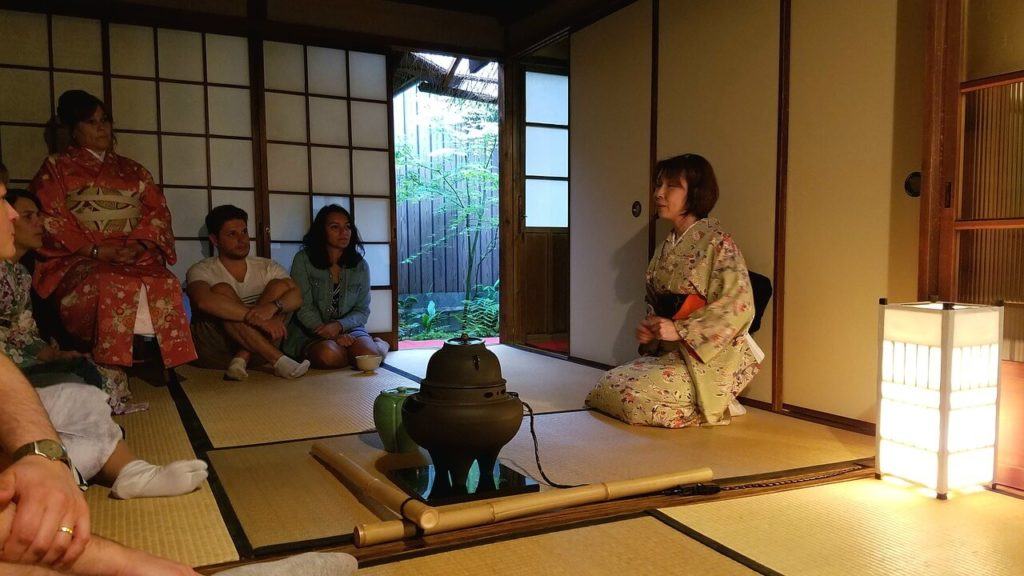
Cultural attractions are also a must for anyone visiting Japan. Whether you're checking out a local temple, heading to the top of a Tokyo skyscraper, or indulging in a local tea ceremony, Japan offers some truly unique experiences. You could live there your entire life and still not have enough time to get through everything.
Sports group (per person) – $20-30
Gym membership – $90
One day bike hire in Tokyo – $10
Eating out – $10-50
Tea ceremony – $51
Mountain hikes – Free!
School in Japan
The Japanese education system is among the best in the world. It is consistently ranked among the highest in the OECD for science subjects. That being said, it's not an option that many expats opt for. Enrollment isn't difficult, but education is entirely in Japanese (bar foreign language tuition). This makes it inaccessible for the majority of expat children.
International schools are your best option. You can enroll your kids in schools that follow the American, British or a variety of other European schooling systems. The international baccalaureate is also widely available. The American School in Japan is the most popular – offering tuition for around $27k per year. Other schools are similarly priced.
Medical Costs in Japan
Japan has an excellent medical system – with a far larger capacity than most other countries in the world. They offer a form of universal healthcare that is paid for through taxation, which is offered to citizens and long-term residents. The only requirement is that you will be staying in Japan for more than a year.
How much you pay depends on your earnings and you can't usually opt-out. For this reason, many long-term expats opt for the public option. It's far cheaper than all private health insurance options, and the system is fast and efficient. Insurance really only becomes worthwhile for the most specialist treatment.
Want to make sure you're insured from the day you arrive, or plan on staying for less than a year? SafetyWing offers a monthly healthcare plan which covers digital nomads, expats, and long-term travellers. We have been using it ourselves for a while now and find them to provide great value.
Visas in Japan
Work visas are notoriously difficult to obtain in Japan. The country has quite an insular immigration policy, meaning you'll need to find employment in a skills-shortage area to find a job. Details of these careers can be found on the government's website. You'll also need to have a job offer ready before you apply.
That being said, it isn't all doom and gloom! English teachers can obtain a JET (Japan Exchange and Teaching) Visa. These programs are run by the Japanese consulate and you'll have to go through a series of interviews. At the end, you'll either be assigned as an assistant language teacher or a specialist in humanities as part of the Coordinator for International Relations program.
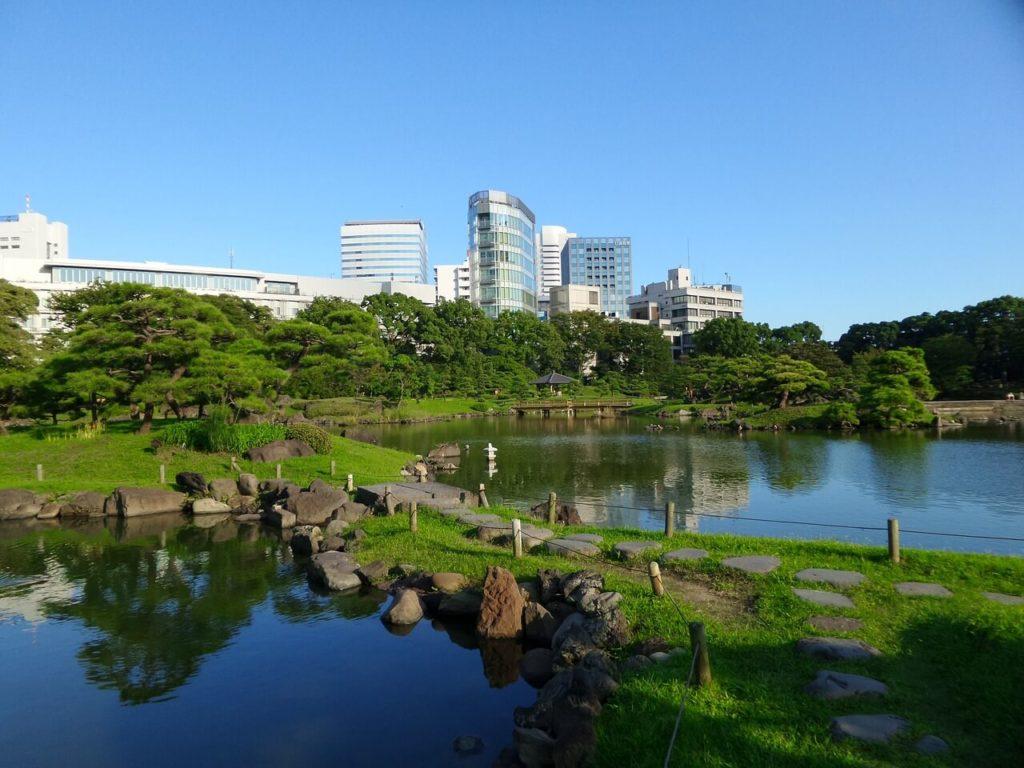
Japan also offers working holiday visas for Australians, Canadians and New Zealanders – as well as citizens of a number of European countries, Korea and Hong Kong. This only allows you to work part time, but you can stay in the country for a year.
The tourist visa for Japan lasts three months. You usually cannot work on this visa, but some digital nomads are able to get away with it. We'll go more in depth about this in the digital nomads section, but generally speaking your business will need to be conducted entirely outside of Japan.
Banking in Japan
Once you've gone through the excruciating visa process, you'll find that banking in Japan is relatively simple. There are a few requirements you'll need to meet before you open a bank account. You need to have lived in Japan for six months, have a residence card (known as Zairyu) and proof of an address in Japan.
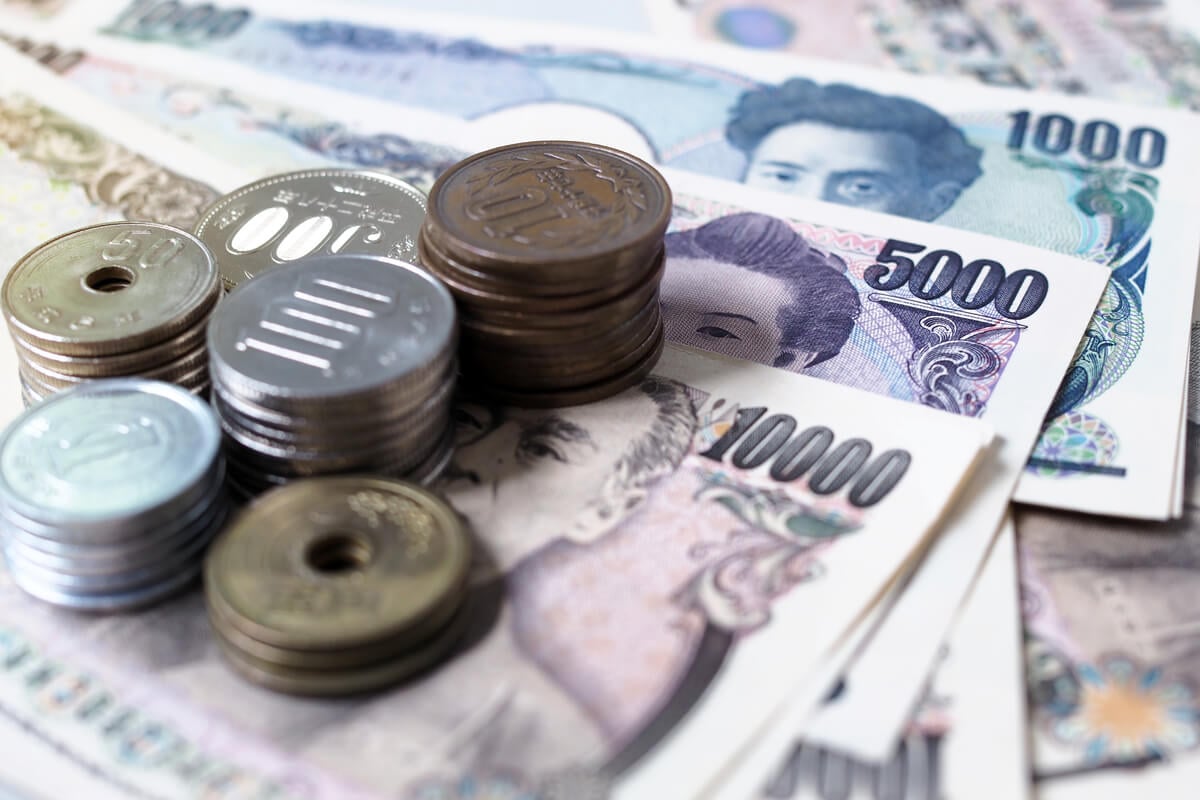
With this in mind, we recommend you have enough money to cover your first seven or eight months in Japan. You'll likely have a job lined up when you get there, but they may not be able to pay you until you have your bank account ready. The most popular banks for expats are JP Bank, Shinsei Bank, Rakuten Bank and MUFG Bank. They all conduct business in both Japanese and English.
In the meanwhile, you probably don't want to carry eight months worth of cash around with you. Monzo and Revolut are excellent bank accounts for using your card abroad, but they will incur some additional charges after a few months. Payoneer is an excellent transfer service – and you can even opt for a pre-loaded payment card whilst you're unable to open a bank account.
Taxes in Japan
Japan has a progressive tax system that varies from 5% for income earned under $18k, right up to 45% on any income earned over $360k. Your tax band will likely be somewhere in the middle. These apply to residents and citizens. Non-residents pay a flat rate of 20.42% plus a surtax of 2.1%. You'll also have to pay a local residency tax which is around 10% of your income.
If that all sounds a bit complicated, we have some good and bad news. The bad news is that calculating your final pay can be a minefield. Thankfully most employers will take care of this for you. Keep in mind that if you do obtain permanent residency you will be taxed on your global income – whilst non-residents only have to pay on income earned in Japan.
That being said, we're not tax experts so make sure to double check with an accountant knowledgeable on the Japanese system if you're unsure.
Hidden Costs of Living in Japan
No matter where you move to in the world it's inevitable you'll incur some hidden costs. It's hard to account for everything, so we recommend taking some extra cash with you. We already recommended having eight months income prepared before you arrive to give you a couple of months leeway for getting a bank account. If you can, keep an extra couple of months in your savings to cover for additional costs.
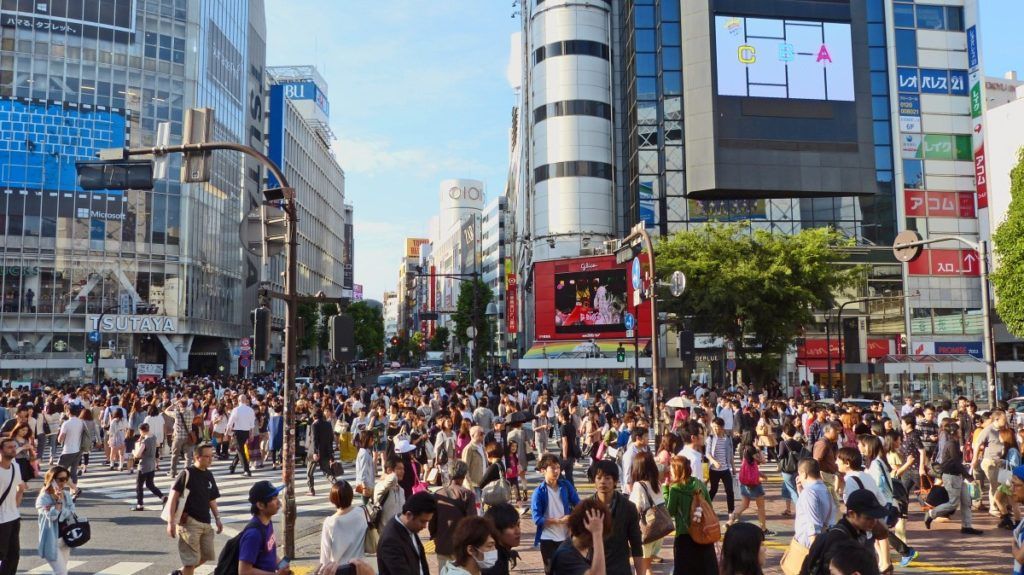
Japan has a decent social security net, but you'll still encounter some charges for various services. Health insurance is taken out of your paycheck – but for some procedures you'll have to pay around 30% of the costs. This includes a variety of procedures that you might require unexpectedly.
On top of this, there are a few hidden costs that expats tend to face. You'll need to account for flights home (which are pretty expensive from Japan), as well as any travel money for exploring other parts of the continent. Shipping costs are also through the nose, so think about how you're going to bring your stuff over as well as send stuff to friends and family back home. These can really add up – but thankfully the Japan Post website has a breakdown of costs so you can at least prepare a little budget for this.
Insurance for Living in Japan
Despite the huge population, Japan is a pretty safe country. Most citizens enjoy a high quality of life, so there are really low levels of crime. That being said – it still happens occasionally. You'll probably also be well aware of Japan's record of natural disasters. Earthquakes and typhoons regularly make the news across the world. For this, you'll need to make sure you have a good insurance plan.
We've already briefly touched on healthcare insurance – it's usually better to go with the public option. Unfortunately, this isn't available for you if you're only staying for a year. In that case, SafetyWing offers health insurance for digital nomads and expats around the world. Check out their website for more information.
Moving to Japan – What You Need to Know
Cost is important – but there's obviously far more to life in Japan. Let's take a look at some of the other essential aspects involved with moving to the country.
Finding a job in Japan
As we mentioned in the visas section, you'll need to have a job before you arrive in order to find work in Japan. The country has one of the strictest visa policies in the world, so you'll need a job in a skills shortage area. Currently, these are engineering, IT, and sales & marketing. This list changes every so often, however, so always double-check to see if your career is there.
Basically all of these jobs will require some knowledge of Japanese – if not outright fluency. Japanese is one of the hardest languages for English speakers to learn, but it's definitely not impossible. Nevertheless, this is why it's far more common for those who already have connections with the country to move there.
The JET Programme is a great opportunity to gain long term work experience in the country. You still need to be learning Japanese to do this – but you don't need fluency. You also need full fluency in English. It's a pretty competitive programme and you'll go through a number of interviews – but it's definitely a once in a lifetime experience.
For those that can obtain a working holiday visa you'll usually be limited to part time work. You can offer your skills as an English teacher – but Japanese education standards are high, so you'll need a good qualification (at the very least CELTA if not a teaching degree, but definitely more than a TEFL). Otherwise, back of house hospitality work is common.
Where to live in Japan
Japan is a long and narrow country. Travelling between the main urban hubs won't take much time, but if you're leaving the main island (Honshu) it can take a little bit longer to get around. The bullet train is famous across the world as one of the best railway connections. As long as you pick a central base you'll find it easy to get around.
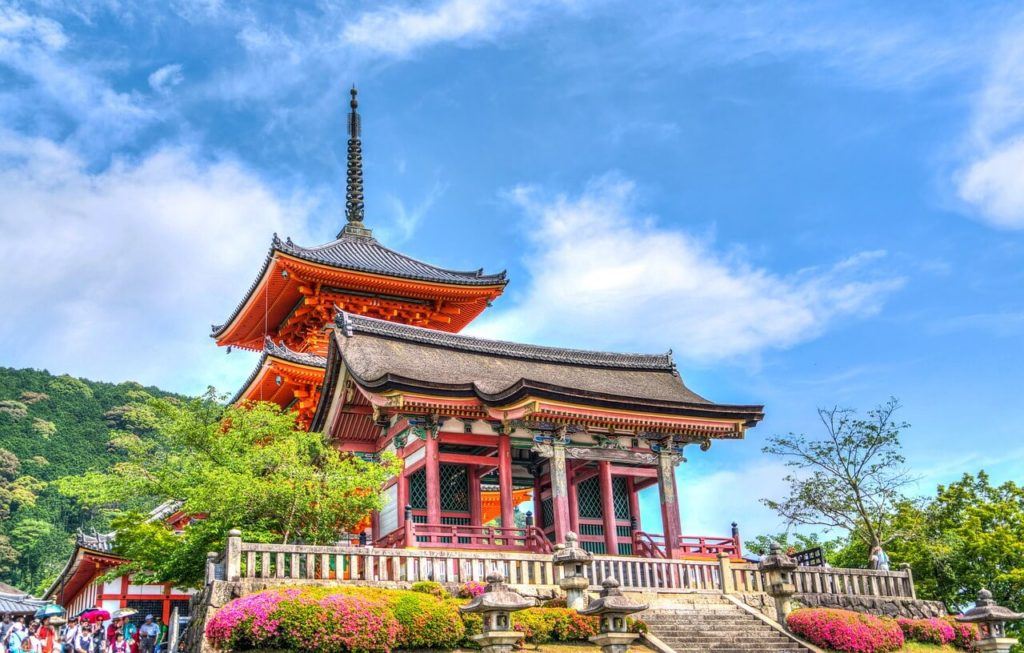
You don't have to visit the country before you arrive – in fact, many people don't as flights are pretty expensive. At the very least you should do a little bit of research on the different cities across the country. They all offer something a little bit different, with some more relaxed and easy going and others more bustling and hectic. Here's a quick rundown of the four most popular destinations for expats.
Tokyo
The entire Tokyo Metropolitan Area is home to over 37 million people – making it the largest in the world! Most expats move here as it's where you'll find the majority of jobs in the country. It's also a major multicultural hub, split into hundreds of districts offering completely different vibes. From trendy Shibuya to historic Taito, this eclectic metropolis has everything you could possibly need. Of course, it's incredibly busy – this is part of the excitement of being in Tokyo.
Coolest Place to Live
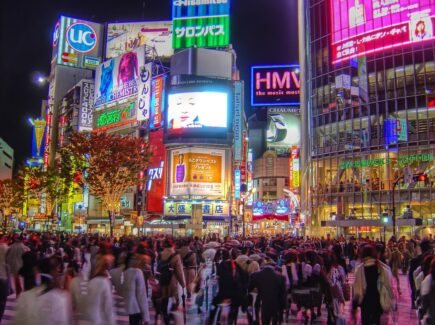
Coolest Place to Live
Tokyo
With millions of people and almost 50 different neighborhoods, there's an endless array of things to discover in Tokyo. It's popular with expats thanks to the huge variety of opportunities available. If you're prepared for the non-stop hustle & bustle, then this is the place for you.
Kyoto
Once the capital of Japan, Kyoto is considered by many to be the most beautiful city in the country. Of course, you'll need to get out of the city center to really experience this beauty. The outskirts are filled with historic temples and shrines (more than 2000 across the metropolitan area). It's also surrounded by a luscious park where you can indulge in some adventure activities. Staying in Kyoto is a great choice for those that like to connect with the outdoors.
Great for Nature & Culture
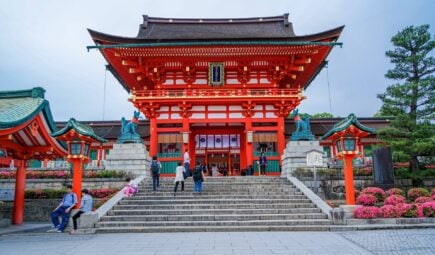
Great for Nature & Culture
Kyoto
Kyoto is famous for its shrines, temples, gardens, and palaces. As the former capital city, Kyoto presents a calmer pace of life with plenty of opportunities to get out and explore. It's a very international city and is very popular with expats as a result.
Yokohama
Although Yokohama is located within the Greater Tokyo Metropolitan Area, it offers a completely different vibe. It's the second largest city in the country in its own right – but has a more calm and pristine vibe. Yokohama is packed with expats – making it a great spot to mingle with people from all over the world. It's a major maritime hub, and the modern infrastructure makes it an excellent place for finding engineering work.
International Community
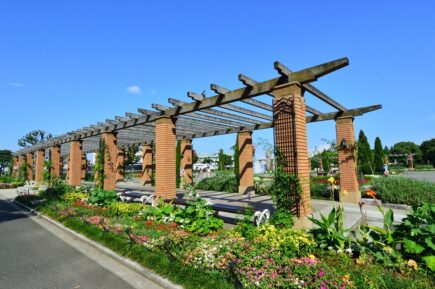
International Community
Yokohama
Yokohama provides a quieter alternative to Tokyo, whilst still maintaining the buzz of metropolitan life. It's ideal for commuters working in Tokyo, offering a lower cost of living and easy transport connections. There are plenty of green spaces to relax in after a day at the office.
Osaka
Every country has its own 'Other City' that stands in contrast to its larger capital. In Japan, that city is Osaka. The city is much more compact and homogenous than the bigger metropolises on the west of Honshu. It's also a major culinary hub in the country. Eastern Japan comes with some unique culinary traditions, and Osaka is a great place to sample many of them. After sunset, it also becomes a major nightlife destination. Clubs are friendlier, drinks are cheaper and music is louder in Osaka. Even if you don't stay in Osaka, make sure you set aside a weekend to visit.
Great for Food & Nightlife
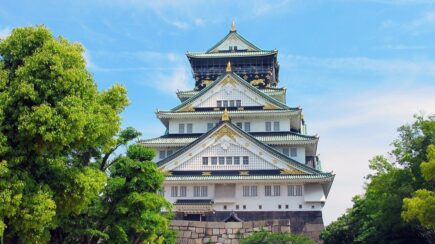
Great for Food & Nightlife
Osaka
Osaka is a hotspot for food lovers, boasting everything from street carts to pubs and world-class restaurants. It's said to be more authentic than Tokyo, with most residents being locals rather than businessmen. It's still got lots of expats, but retains a more traditional Japanese feel than other areas.
Japan Culture
Japanese culture is completely unique in the world. These days it is a finely woven tapestry of hyper-modern urbanism and deep tradition, which at times can feel like two completely separate countries. If you're moving from North America or Europe you'll probably experience some major culture shocks – but thankfully the cosmopolitan city centres offer a little something from every corner of the world to stave off the homesickness.
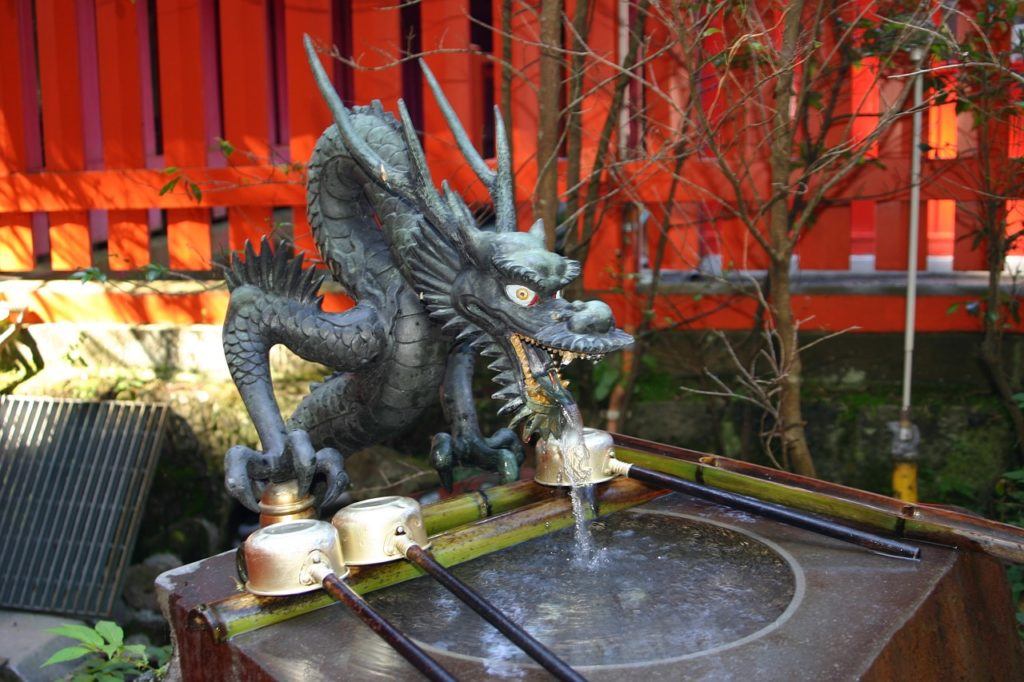
Speaking about cosmopolitan city centres – despite the insular immigration policy, Tokyo and Yokohama are both incredibly popular with expats. You'll find it much easier to socialise within these communities, though it certainly isn't impossible to mix with locals.
Pros and Cons of Moving to Japan
Japan is a rewarding destination with a lifetime of experiences and opportunities – but it doesn't come without its cons. What might be the dream destination to one person could be an absolute nightmare to the next. You'll need to balance up the good and the bad of living in the country before you take the plunge. Here are some of the key points to keep in mind.
Pros
Unique culture –If you've ever seen Lost in Translation, you'll know just how jarring the culture in Japan can be – but for most visitors, this is part of the excitement! There are so many experiences and attractions that you just won't find anywhere else in the world. If you're a novelty junkie you won't ever struggle to get your fix in Japan.
Mouthwatering cuisine –A big part of the fascinating culture is the food. You probably already know about the classics – but Japan has a rich and diverse culinary scene just like everywhere else in the world. Each city, town, and fishing port offers its own take on local ingredients, with some truly creative solutions to the limited agriculture in the country.
Modern technology –The rest of the world is catching up now, but for decades Japan was the center of new technology. It's still at the cutting edge of urban living, resulting in carefully planned and efficient cities. The bullet train is a must, but even within the city neighborhoods, you'll find everything just…works. This is a novelty for many North American and European expats.
World-class shopping – From the high-fashion of Harajuku to the technology markets in Yokohama, you'll have everything you could ever want right on your doorstep. Huge malls, bustling markets, and quirky boutiques combine for an eclectic retail ecosystem. You'll be getting orders from your friends back home before you've even had time to settle.
Cons
Incredibly expensive –As you've probably already noticed, Japan is one of the most expensive countries in the world. All that efficient transport and vibrant culture comes at a cost – and for many visitors it's simply far too restrictive. You'll need to be realistic about your budget before you take the plunge.
Difficult visa process –The immigration process is nothing short of a nightmare! The visa policy is incredibly frustrating, leaving you in the Catch-22 situation of trying to find a job in order to gain a visa whilst also discovering most jobs prefer those who already have residency. Without Japanese language skills and experience in a shortage area, your prospects are pretty poor.
Hard to find work –This really goes with the point above – most employers prefer Japanese citizens and permanent residents. This is the case all over the world, but the process is particularly difficult in Japan. Even if you arrive on a working holiday visa, you'll find it's tricky to get a job that meets the part-time requirement and is fine with the fact you'll legally have to quit after a few months.
Tightly packed cities –For some this is a pro – but for many, the dense cities are a major con. Apartments are tiny, trains are packed, and restaurants are super claustrophobic at lunchtime. If you're not much of a city slicker you'll have a tough time in Japan. There are rural areas, but it's nearly impossible to find decent work in those areas.
Living as a Digital Nomad in Japan
Japan's high cost of living and difficult visa process makes it one of the less popular choices for digital nomads in Asia. That being said, with excellent internet speeds and world-class attractions, many digital nomads who are in the area opt to spend a couple of months travelling around the country. All things considered, the city centers are incredibly friendly to digital nomads that can afford to live there, with plenty of facilities available.

Unfortunately it's really hard to overcome the difficult visa policy – although we'll outline your options a bit more below. For this reason, we reckon it's a great stopover point for digital nomads travelling between other countries in Asia. It's much more developed than Southeast Asia, giving you a little bit of respite and the necessary connectivity to get your work done.
Internet in Japan
It should come as no surprise that the technological capital of the world has some excellent internet speeds. Fibre optic is available to 90% of the population (and basically every business), offering you premium internet connectivity as standard. If you're on a budget you can also opt for a wireless internet plan – connecting you to a number of networks across the major cities.
Like everything else in Japan, however, it's pretty pricey across the board. The cheaper wireless options offer slower speeds and greater security risks – whilst wired connections will cost you through the nose. Given most digital nomads look for temporary accommodation, we suggest making sure broadband is included.
Digital Nomad Visas in Japan
We've said it before and we'll say it again – getting a work visa for Japan is difficult. They don't currently offer any digital nomad visas, so you'll have to get a little creative when it comes to living a remote worker lifestyle in Japan. There are a few (legal!) options open to you that mean you can enjoy a few months in the country.
Working on a tourist visa is technically illegal, but you'll be fine if you're working as a digital nomad. The only requirements are that your work is conducted with a company that is based outside of the country and paid into a foreign bank account (which is where Payoneer comes in handy). Essentially, work can't be part of your reason to be in the country. You'll also have to pay taxes to your home country.
They've also recently set up a start-up visa scheme. With this scheme you can enjoy between six months and a year in the country working on a start-up business. These have to be in certain industries depending on which city you opt to apply for – each one has different business needs. The Shibuya prefecture in Tokyo is one of the most popular, offering visas to health, energy, food, IT, culture, and fashion businesses.
Co-working Spaces in Japan
Co-working spaces are widespread across Japan. As a major technology hub, there are plenty of remote workers located in the major cities. You'll also find, conveniently, that these co-working spaces are clustered around the neighborhoods that offer start-up visas.
FAB Cafe, the Hive, and Tokyo Chapter are all some of the most popular co-working spaces in the country. Most of them host regular social events where you can mingle with other digital nomads, start-up owners, and remote workers. If nothing else, the co-working spaces in Tokyo are a great way to find a community in an otherwise quite lonely city.
Living in Japan – FAQ
What are the biggest expenses when living in Japan?
The highest expense when living in Japan is groceries and food. It can make up to 38% of the total expense. Rent costs follow closely but only take up 22.7%. Another big expense in Japan is transportation.
Is living in Japan cheaper than America?
Living in Japan is about three times as expensive as living in the US. Living costs in the main cities are significantly higher than in the more rural side. Japan is in the top 10 of the most expensive countries to live in.
What is a good salary in Japan?
A salary above $28k USD/year will allow you a rather comfortable lifestyle in Japan. If you want to live in the main cities, you'll need to aim for a higher income to have the same quality of life.
What is the cheapest area to live in Japan?
Kyoto and Fukuoka are the most affordable cities in Japan. Of course, living in the countryside will be even cheaper, but you won't have the same quality of life than in the cities. Tokyo, Osaka and Yokohama are the most expensive cities.
Final Thoughts on Japan Living Costs
What's our final verdict on moving to Japan? Well, it really depends on your priorities. It's not easy – you'll need to find a skilled job, learn Japanese, and work hard when you get there. That being said, crack all of that and you'll be rewarded with an incredible cultural experience. It's not for everyone, but for many people, it's the best place in the world. We hope this guide has helped you consider your options.
Find out how YOU can support the site.
We're a big site with a big team and this job isn't always easy. But we do it because we love it – we love providing epic and free content. We love the knowledge that our content keeps you adventuring. We don't ask for money, but if you'd like to find out how you can help the site in more organic ways, click the button below.
Thank you for your support 🙂
And for transparency's sake, please know that some of the links in our content are affiliate links. That means that if you book your accommodation, buy your gear, or sort your insurance through our link, we earn a small commission (at no extra cost to you). That said, we only link to the gear we trust and never recommend services we don't believe are up to scratch. Again, thank you!
How Much Does It Cost to Live in Japan
Source: https://www.thebrokebackpacker.com/cost-of-living-in-japan/